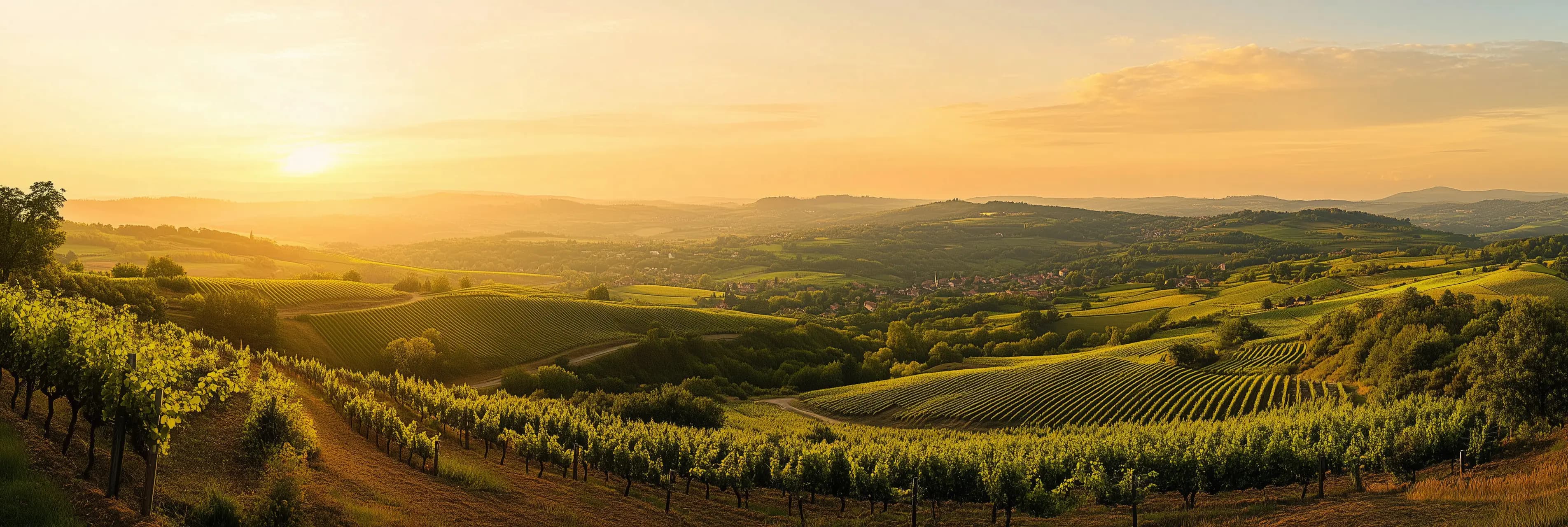Inheritance taxes are crushing Beaujolais winemakers: will the next generation survive?
In the heart of Beaujolais, where family-owned vineyards have passed through generations, a growing crisis is brewing. The rising value of vineyard land, coupled with France’s heavy inheritance taxes, is placing an insurmountable burden on families seeking to pass their properties to the next generation.
What was once a family’s prized asset is becoming a financial trap, forcing many to sell their vineyards or take on crushing debt to cover tax bills.
As Beaujolais continues to gain global recognition, particularly in its prized crus like Morgon and Moulin-à-Vent, the future of family-run operations is at risk. This article explores the impact of inheritance taxes on Beaujolais winemakers and the urgent calls for reform to preserve these cherished vineyards.
The rising value of Beaujolais vineyards
Beaujolais, once overshadowed by Burgundy and other prestigious wine regions, has seen a significant rise in demand for its wines, especially those from the ten recognized crus, such as Fleurie and Brouilly. As international recognition grows, so does the value of the land. In regions like Moulin-à-Vent, land values have reached staggering levels, comparable to those in Burgundy.
For many families, this increase in property value has created an unexpected challenge—inheritance taxes based on inflated land prices that exceed the ability of most to pay without taking drastic measures.
Inheritance taxes: a "poisoned gift"
When a vineyard owner passes away, their heirs are faced with France’s steep inheritance tax, which can reach up to 45% on estates valued over €1.8 million. In Champagne, for example, one hectare of land can be worth €1 million, forcing heirs to pay €150,000 in taxes per hectare.
While Beaujolais hasn’t reached those levels yet, the trend is worrying. Many vineyard owners describe their inheritance as a “poisoned gift,” where children must either sell part of the land or take on long-term debt just to cover the tax bill. ** **
Jérôme Bauer, president of the Confédération Nationale des Appellations d'Origine Contrôlée (CNAOC), has warned that without changes, family vineyards in regions like Beaujolais could soon be lost to corporate investors or luxury groups.
This concern has been echoed by vignerons across France who fear losing control of their family’s heritage.
The call for reform: expanding the Pacte Dutreil
Amid calls to extend the Pacte Dutreil to include vineyard inheritances, it’s essential to consider France’s broader economic situation.
The country is grappling with high public debt, which reached approximately 110% of GDP in 2023, creating significant pressure on the government to maintain tax revenues.
Public finances are tight, and any reduction in tax income—such as through inheritance tax relief—could further strain the budget.
Reforming the Pacte Dutreil to ease the financial burden on winemakers must be balanced against the government's need to generate revenue. This explains why such changes have been slow to materialize despite the overwhelming support from agricultural sectors.
The government is faced with the dilemma of preserving family-owned businesses and cultural heritage while also addressing budgetary constraints.
By extending the Pacte Dutreil to vineyard land, winemakers propose a solution that alleviates the tax burden on families, allowing them to reinvest in their operations instead of selling off parts of their land. However, the cost of implementing this policy must be weighed carefully, as reducing estate tax revenues could exacerbate France's public debt situation.
This financial context makes it clear why the issue is so contentious. While vineyard owners in Beaujolais and other regions are urging for this reform to safeguard their heritage, lawmakers are cautious about any measures that might reduce the state's already stretched fiscal resources.
The emotional toll and cultural impact
The financial strain of inheritance taxes is not the only issue; the emotional toll on families is immense. For many, these vineyards are more than a business—they are a way of life and a cultural legacy passed down through generations.
Losing the vineyard means losing a piece of family history, and for many in Beaujolais, that history is tied to the very identity of the region.
Thomas Collonge, a seventh-generation winemaker in Beaujolais, embodies this connection. He, like many of his peers, has dedicated his life to preserving the traditions and quality of his family’s wines. Without reforms, families like his could be forced to sell their land, often to large corporations with little interest in maintaining traditional practice.
The inheritance tax crisis is a pressing issue for Beaujolais winemakers, threatening not only their livelihoods but also the cultural fabric of the region.
As vineyard values continue to rise, the financial burden on families will only grow. Without swift and meaningful reform, the Beaujolais landscape could shift from one dominated by family-run vineyards to one controlled by corporate entities.
The proposed extension of the Pacte Dutreil offers a glimmer of hope, but time is running out. The next generation of Beaujolais winemakers deserves the opportunity to carry on their family’s legacy, not to be crushed by the weight of inheritance taxes.

